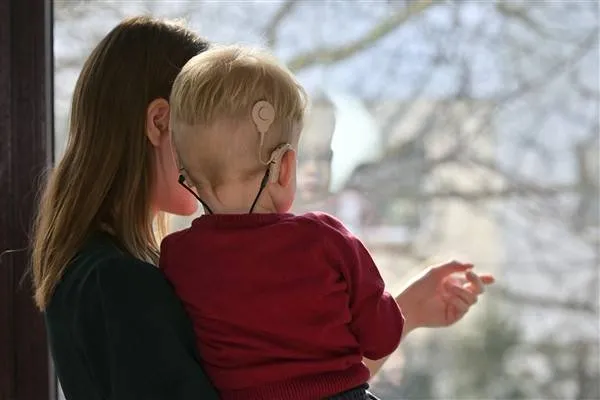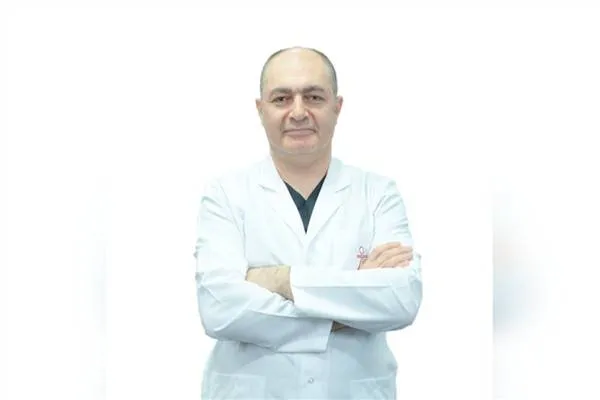Don't Let Your Child's Hearing Loss Affect Their School Success
Prof. Dr. Yıldırım Ahmet Bayazıt, Head of the ENT Department at Gaziosmanpaşa Hospital of New Century University, provides information to parents and educators about the impact of hearing loss on school performance.
Prof. Dr. Yıldırım Ahmet Bayazıt emphasizes that hearing loss is a congenital condition and one of the most common problems. He said, "Out of every 1,000 live births, 1 to 3 have a degree of deafness, while 30 to 60 per thousand have varying degrees of hearing loss. When considering the school age, adolescence, adulthood, and old age, the rate of hearing loss in society exceeds 50 percent. Normal hearing is especially important for newborns, school-age children, and individuals. Those who are not treated early can develop permanent hearing and speech problems, affecting academic, social, and neuropsychological problems in school-age children and individuals."
Hearing loss can range from mild to severe and can be unilateral or bilateral. It can also be due to problems in outer and middle ear transmission or neurological problems occurring between the inner ear and the brain.
Prof. Dr. Yıldırım Ahmet Bayazıt, Head of the ENT Department, said that about 1 in 10 school-age children has hearing loss, adding:
"In recent years, the rate of severe hearing loss has started to decrease, while the rate of mild hearing loss has started to increase. About one in ten school-age children has hearing loss for various reasons. Among these, the most common and easily treatable is earwax, known colloquially as 'body candle.' Second, there are insidious middle ear inflammations described as the presence of fluid in the ear; however, about 5 percent of children have sensorineural hearing loss in both ears. Sensorineural loss can also occur in only one ear, and this is seen in about 3 percent of school-age children. In other words, the frequency of hearing loss in school-age children has increased by about ten times compared to infants; however, there are many problems and difficulties that hinder the early diagnosis and treatment of this condition. These problems are often related to how parents and school-age children accept the situation and comply with the doctor's recommendations."
Prof. Dr. Yıldırım Ahmet Bayazıt also discussed the impact of hearing loss on brain functions, saying: "The normal development of cognitive and psychological pathways in the upper centers of our brain largely depends on how normal auditory inputs are. Weakness in auditory inputs alters the organization of connections and cortex in the upper brain centers. For example, if a person has hearing loss in the right ear, the cortex in the left hemisphere of the brain, where the main auditory center is located, develops less. Connections of the auditory center with speech and cognitive function areas also differ, and naturally, all of these changes have neurobiological and neuropsychological reflections."
Prof. Dr. Yıldırım Ahmet Bayazıt stressed that in unilateral hearing loss, the problem can be overlooked and said, "Children with hearing loss in both ears are diagnosed early because they turn to a healthcare facility due to newborn screening programs or due to a weakness in the child's auditory perception. In the case of mild hearing loss or unilateral hearing loss, the problem may go unnoticed. Such children usually show sufficient language and speech development in the preschool period; but when the child reaches school age, problems begin. These children are often reported to have weak cognitive development or intelligence, to be aggressive, and to have behavioral disorders, and sometimes they are suggested to be transferred to sub-category classes."
Prof. Dr. Yıldırım Ahmet Bayazıt pointed out the possibility of attention deficits in school-age children with hearing loss and said:
"School-age children with hearing loss can have attention problems in academic and social matters. About a third of these children repeat a grade in school. This rate is ten times higher than that in the normal population. Interestingly, the academic performance of children with severe hearing loss is higher than that of children with mild hearing loss. The reason for this is that children with severe hearing loss can be diagnosed and treated earlier and can improve their performance, and at the same time, parents, the child, the social environment, and school officials can adapt better to the situation. Children with mild hearing loss usually do not notice, do not care, or hide it, which means they cannot be treated, and their performance declines. The reason for this is often the idea that hearing loss is a shameful deficiency."
On the other hand, in untreated hearing loss, understanding speech, especially in the presence of background noise, can be difficult. Sometimes they can even miss whispering sounds while understanding normal speech. The person has to turn their head in the direction where they can hear better. This daily repetition can make the person or the student even shyer and start to isolate themselves from social areas. At the same time, the effort they have to put into understanding speech can lead to early fatigue and irritability."
In conclusion, it is now a known fact that school-age children with hearing loss, especially when not diagnosed and treated, experience academic and social problems."
Usa News Agency
















